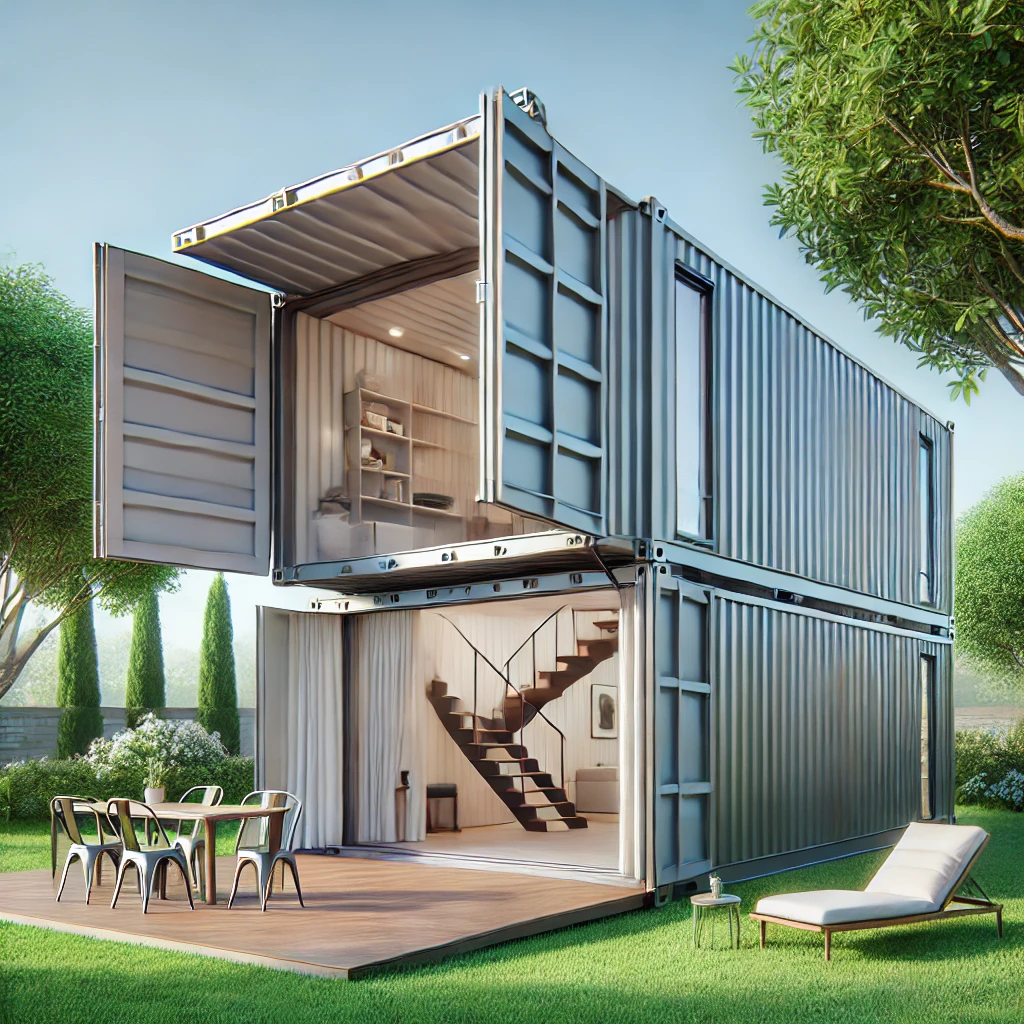Advantages and Disadvantages of Foldable Mobile Container Homes

In recent years, as urbanization intensifies and calls for sustainable development grow stronger, foldable mobile container homes have emerged as an innovative housing solution, gaining popularity among the general public. These homes are not only convenient and flexible but also combine environmental and economic benefits, making them an ideal mobile living option in modern life.
1. What is a Foldable Mobile Container Home?
A foldable mobile container home is a modular building based on standard container designs. It remains compact during transport, just like a regular shipping container. Once it reaches its destination, it can be unfolded through a simple process, quickly transforming into a fully functional living space. This design offers significant advantages in terms of transportation cost, assembly time, and space utilization.
2. Key Features and Benefits
Portability and Flexibility
The primary appeal of a foldable mobile container home is its portability. Due to its compact form, it can be easily transported by truck, train, or even ship, making it suitable for various terrains. Whether used as temporary housing in suburban areas or as shelters in emergencies, these homes can be deployed quickly and provide comfortable living spaces.
Sustainability and Environmental Friendliness
Compared to traditional buildings, foldable container homes have a much smaller environmental footprint. They often use recycled or reusable materials, reducing the demand for new resources. Additionally, since they can be moved as needed, they don’t have the long-term impact on land that permanent buildings do. The modular design allows for easy disassembly and reuse, avoiding construction waste.
Cost-Effectiveness
In terms of construction costs, foldable mobile container homes are significantly more affordable than traditional buildings. Their rapid assembly and reusability cut down on labor and construction time. Moreover, many container homes come with energy-efficient designs, such as solar panels and rainwater collection systems, reducing long-term operational costs.
3. Applications
Residential and Vacation Homes
Many people who embrace minimalist living have started using foldable container homes as permanent or vacation residences. These homes not only save time with quick assembly but can also be customized to meet personal needs, enhancing comfort and functionality indoors.
Emergency Shelters
During natural disasters, rapid assembly of shelters is crucial. Foldable mobile container homes can be delivered to disaster areas in a short time, providing safe and warm living environments for affected populations.
Commercial and Office Spaces
Many businesses have also recognized the potential of foldable container homes, especially when temporary offices, showrooms, or mobile shops are needed. Their flexibility allows these spaces to be set up quickly and easily relocated to new sites.
4. Future Outlook
With advances in technology, foldable mobile container homes will become more sophisticated in design, more environmentally friendly in materials, and more versatile in functionality. In the future, they may become an integral part of urban planning, emergency response, and sustainable living practices
These innovative homes are not only a testament to modern living intelligence but also offer a fresh perspective on the future of housing.
Foldable mobile container homes are quietly redefining the traditional concept of "home."






































